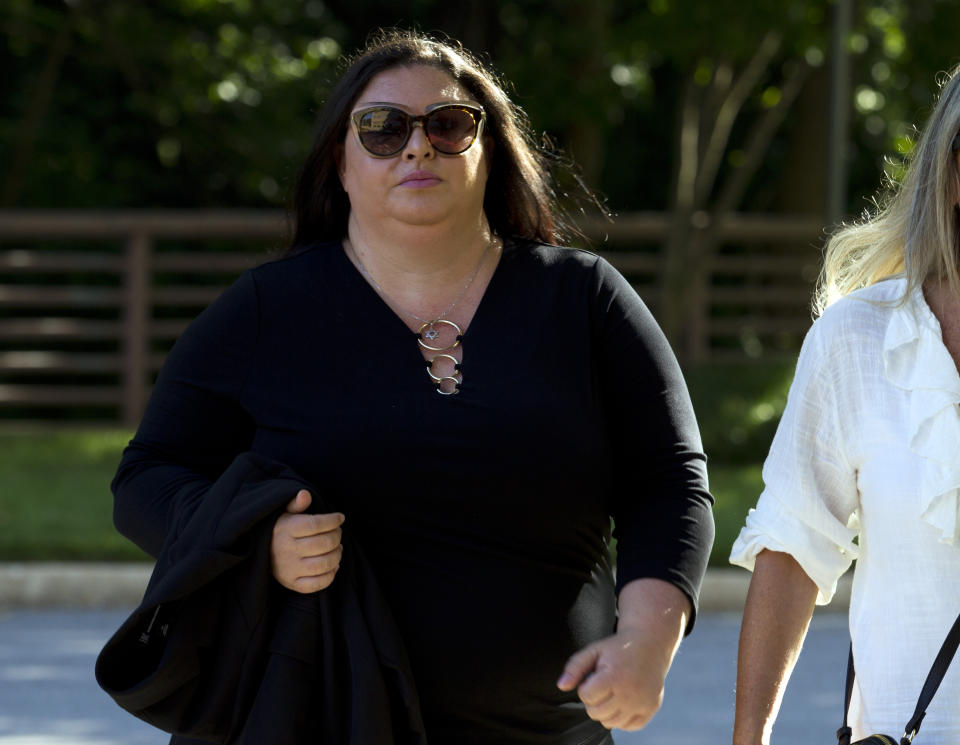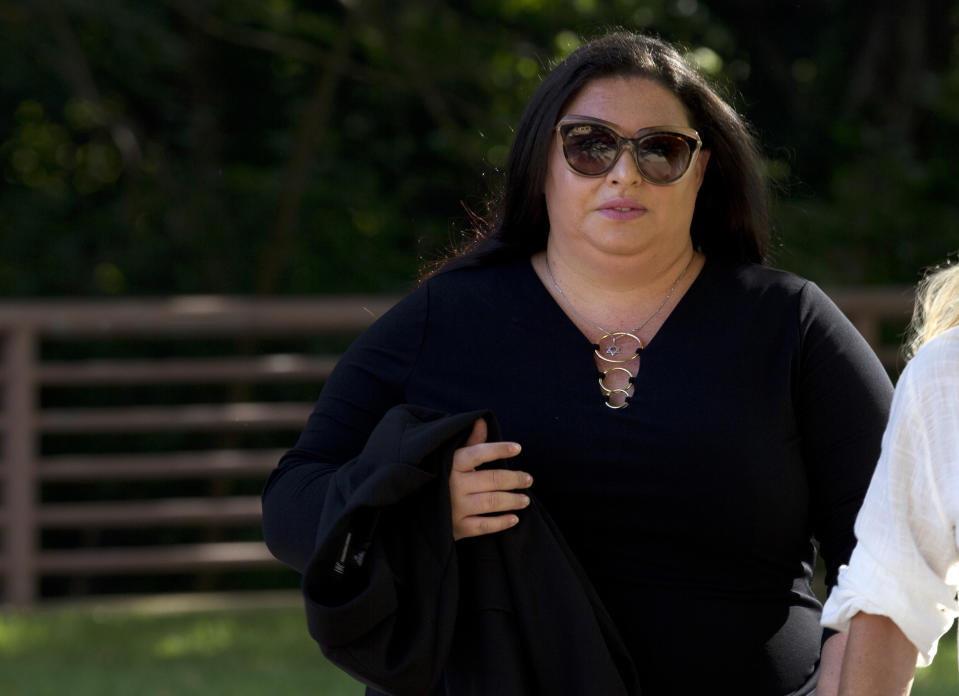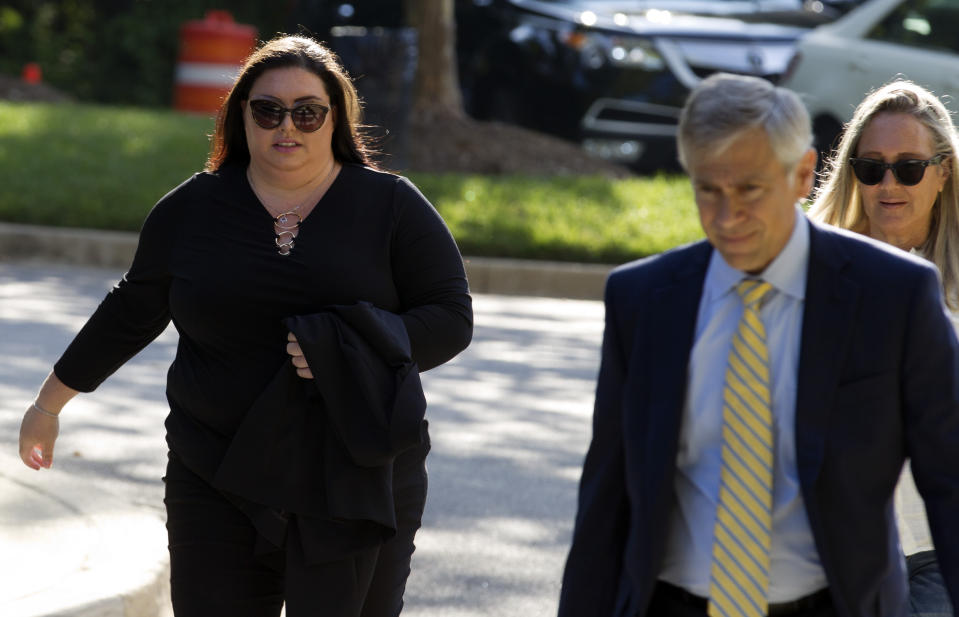Prosecutor: Israeli woman oversaw $145M investor fraud plot
GREENBELT, Md. (AP) — Recorded telephone calls, company emails and videotaped evidence will show that an Israeli woman oversaw a "massive" scheme to defraud tens of thousands of investors across the globe out of tens of millions of dollars, a federal prosecutor told jurors Tuesday.
"She trained (employees) to lie to victims, over and over and over again," Justice Department prosecutor Caitlin Cottingham said during opening statements for Lee Elbaz's trial in Maryland.
But an attorney for Elbaz said the 38-year-old woman didn't condone any of the fraudulent tactics used by employees who worked under her supervision at a call center in Israel. Defense lawyer Barry Pollack said the evidence will show Elbaz never intended to defraud investors "even if others around her did."
"She wanted her employees to work clean," Pollack told the jury.
Elbaz is one of 15 defendants in the case and the first to be tried. Five have pleaded guilty and agreed to cooperate with prosecutors. Nine others were indicted in February.
Elbaz, who was CEO of an Israel-based company called Yukom Communications, is accused of engaging in a plot to dupe investors through the sale and marketing of financial instruments known as "binary options."
The binary options market largely operates outside the U.S. through unregulated websites. In court papers, prosecutors said the payout on a binary option is usually linked to "whether the price of a particular asset — such as a stock or a commodity — would rise above or fall below a specified amount."
"Investors are effectively predicting whether its price will be above or below a certain amount at a certain time of the day, and when this option 'expires,' the option holder receives either a pre-determined amount of cash or nothing," they wrote.
Yukom provided sales and marketing services for BinaryBook and BigOption, the brand names for internet-based businesses that purportedly sold and marketed binary options. By late 2017, investors had deposited roughly $185 million into BinaryBook and BigOption accounts and withdrawn less than $50 million, prosecutors said.
Elbaz, who used the alias "Lena Green" while interacting with investors, was indicted in March 2018 on three counts of wire fraud and one count of conspiracy to commit wire fraud. FBI agents arrested her in September 2017 after she traveled to New York. She has been living in San Francisco with a relative while awaiting trial in Greenbelt, Maryland.
A separate indictment against nine other defendants, including Yukom owner Yosef Herzog, says the scheme involving BinaryBook and BigOption cost investors more than $145 million worldwide, including thousands of victims in the U.S.
Cottingham said Yukom employees at a call center in Caesarea, Israel, solicited investments through lies and false promises. Employees pretended to be from other countries, lied about their professional qualifications and adopted "stage names," the prosecutor said. They also falsely guaranteed profits, lied about their historical rates of return and didn't tell investors that they only made money if their customers lost money, she told jurors.
"They knew that if they told clients the truth, they wouldn't have sent money," Cottingham said.
Cottingham told jurors they will see video of Elbaz telling FBI agents that 95% of clients who sent money to BinaryBook and BigOption lost money.
"No one told victims that," she added.
Pollack said Elbaz expected employees to meet their sales targets and earn their commissions honestly.
"Some of them made false promises and false guarantees," he said. "And you know what? Some of them got caught."
An email instructed BinaryBook sales representatives to target retirees, Social Security recipients, pension holders and veterans as clients, according to court filings accompanying guilty pleas by former employees.
Eugene and Penelope Timmons of Kansas City, Missouri, said they dipped into life savings to invest approximately $110,000 through BinaryBook over nearly two years. They lost everything. Penelope Timmons, 72, said BinaryBook's website initially created the illusion they were making money.
"We couldn't get our money out. All they kept doing was hand us off to other people," she said during an interview last year. "Once you realize these people have taken you, it's very demoralizing and discouraging."
In 2011, the FBI's Internet Crime Complaint Center received only four complaints from victims of binary options fraud, reporting losses of just over $20,000. In 2016, however, the center received hundreds of these complaints with millions of dollars in reported losses.
"This has been a worldwide problem," Justice Department prosecutor Ankush Khardori said during a September 2017 detention hearing for Elbaz, according to a transcript.
Elbaz's indictment cites a September 2015 email from one employee to co-workers about a sales "marathon," a competition to obtain deposits from investors.
"This is not a cemetery here! It's a boiler room!" the employee wrote.










